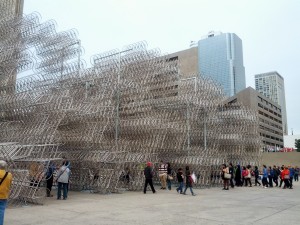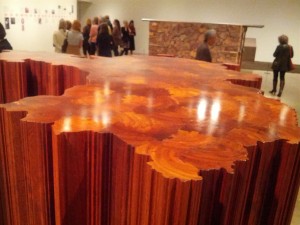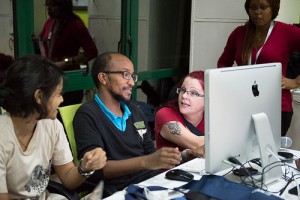Ai WeiWei’s According to What? exhibition and Forever Bicycles exhibition are both currently showing in my home town. As I contemplate community development, I find myself profoundly influenced by his art and thoughts.
In the book, Ai WeiWei speaks he considers our online world a Social Sculpture. Often I like to think of online communities like digital small towns on a large map. With this, I think of open source like my local childhood credit union or CO-OP grocery. Imagine my joy when I moved to Quebec to find the Caisse Populaire network. Really, it struck me that my prairie childhood was not dissimilar to that of a Quebecois, it was just local language, local knowledge and local culture. His writing left me wondering: Are there really molds of ‘Social Sculpture’ or is it hopefully organic? Do we sculpt online or does it sculpt us? Is there a difference? Be.
Community Values
How can the values and creativity of art be used to inspire our work? What values do we want/need to build great community? What is the glue?
Last year a number of Digital Volunteers got together to write a Community Code of Conduct. I took this and remixed it for Ushahidi.
Some of the core values that I have learned from my time in open source communities:
- Do your research, don’t duplicate efforts, build on OS values
- Welcome. Collaborate and build community first
- Be kind and open to new ideas, perspectives
- Be ready to change or pivot, because your community will change you
- There are many definitions and activities (versions) of “open”.
- Coining Global: Mission first, not gold rush mentality. Be participatory, there is enough space and work to do for all of us
- Be a member of your small digital town
As they say in tech: MORE IS MOAR. What have you learned? What are your core values? How can we collectively open up our worlds and be true?
What I’m reading:
The Future of Open Systems Solutions, Now (Stephen Kovats, UNESCO) (PDF)
Treat Data as Code
Managing People


